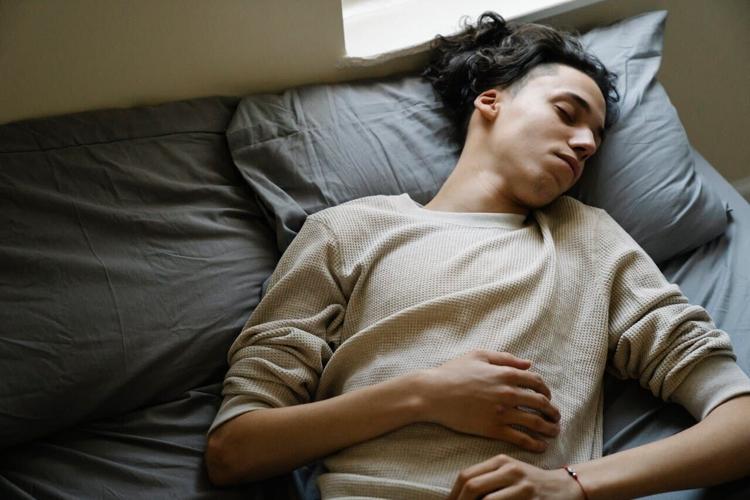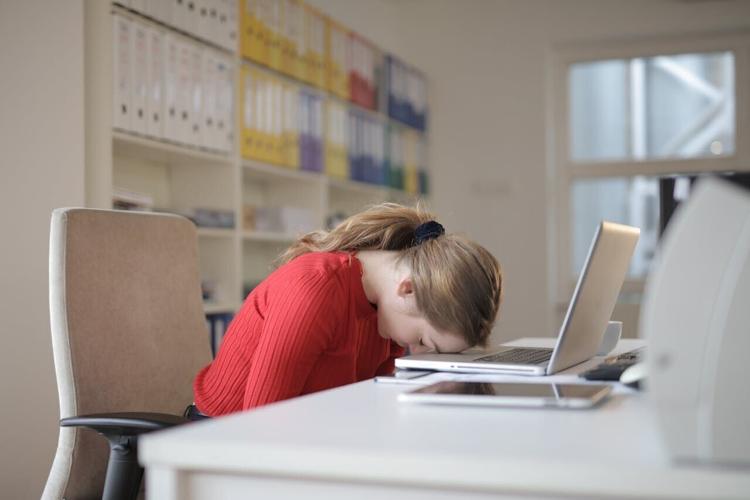
Photo by Eren Li via Pexels
By Stephen Beech
Teenagers who don’t get enough sleep on school nights are at greater suicide risk, according to a new study.
Researchers established a link between disrupted sleep in early adolescence and later suicide attempts for the first time.
Suicide is one of the leading causes of death among teenagers in the UK.
But, despite teenagers’ well-known tendency to miss out on sleep as a result of both biological and social factors, the long-term impact of sleep loss on suicide risk had remained unclear until now.
University of Warwick researchers analyzed data from more than 8,500 British youngsters in the Millennium Cohort Study.
The findings, published in the journal Sleep Advances, found that teenagers who reported a suicide attempt at age 17 were more likely to have had shorter time in bed on school days and disrupted sleep at age 14.

Photo by Andrea Piacquadio via Pexels
Study co-author Michaela Pawley, a doctoral candidate in Warwick's department of psychology, said: “Adolescence is a crucial developmental period where both sleep problems and suicide risk tend to emerge.
"Our findings show that adolescents who experience difficulties maintaining and obtaining sufficient sleep are more likely to report a suicide attempt several years later.
"Poor sleep is not just a symptom of wider difficulties, but a significant risk factor in its own right.
"Addressing sleep problems could form a vital part of suicide prevention strategies.”
The findings showed that shorter total time in bed on school days and more frequent night awakenings at 14 years of age were associated with an increased likelihood of reporting attempted suicide at 17.
The associations held even after accounting for established suicide risk factors such as socio-economic status, history of self-harm, and mental health issues.

Photo by Pavel Danilyuk via Pexels
Shorter total time in bed on school days and more frequent night awakenings were also stronger risk factors compared to depressive symptoms and other established psycho-social risk factors.
The researchers were the first to explore how cognitive factors may influence the relationship.
They found that teens with stronger rational decision-making skills appeared protected against the impact of night awakenings on suicide risk, although that protective effect diminished with frequent sleep disruption.
Study senior author Professor Nicole Tang said: “We need to recognize that sleep deprivation and fragmentation are not trivial complaints – they can wear your defenses down and drive actions or behaviors that have life-or-death consequences."
Dr. Tang, director of Warwick Sleep and Pain Lab, added: "If we can better identify and support teenagers struggling with sleep, we may be able to reduce suicide attempts.”
She said the findings provide a basis for identifying teenagers most at risk, and highlight the potential of increasing sleep time on school nights as a practical target for suicide prevention among young people.























(0) comments
Welcome to the discussion.
Log In
Keep it Clean. Please avoid obscene, vulgar, lewd, racist or sexually-oriented language.
PLEASE TURN OFF YOUR CAPS LOCK.
Don't Threaten. Threats of harming another person will not be tolerated.
Be Truthful. Don't knowingly lie about anyone or anything.
Be Nice. No racism, sexism or any sort of -ism that is degrading to another person.
Be Proactive. Use the 'Report' link on each comment to let us know of abusive posts.
Share with Us. We'd love to hear eyewitness accounts, the history behind an article.